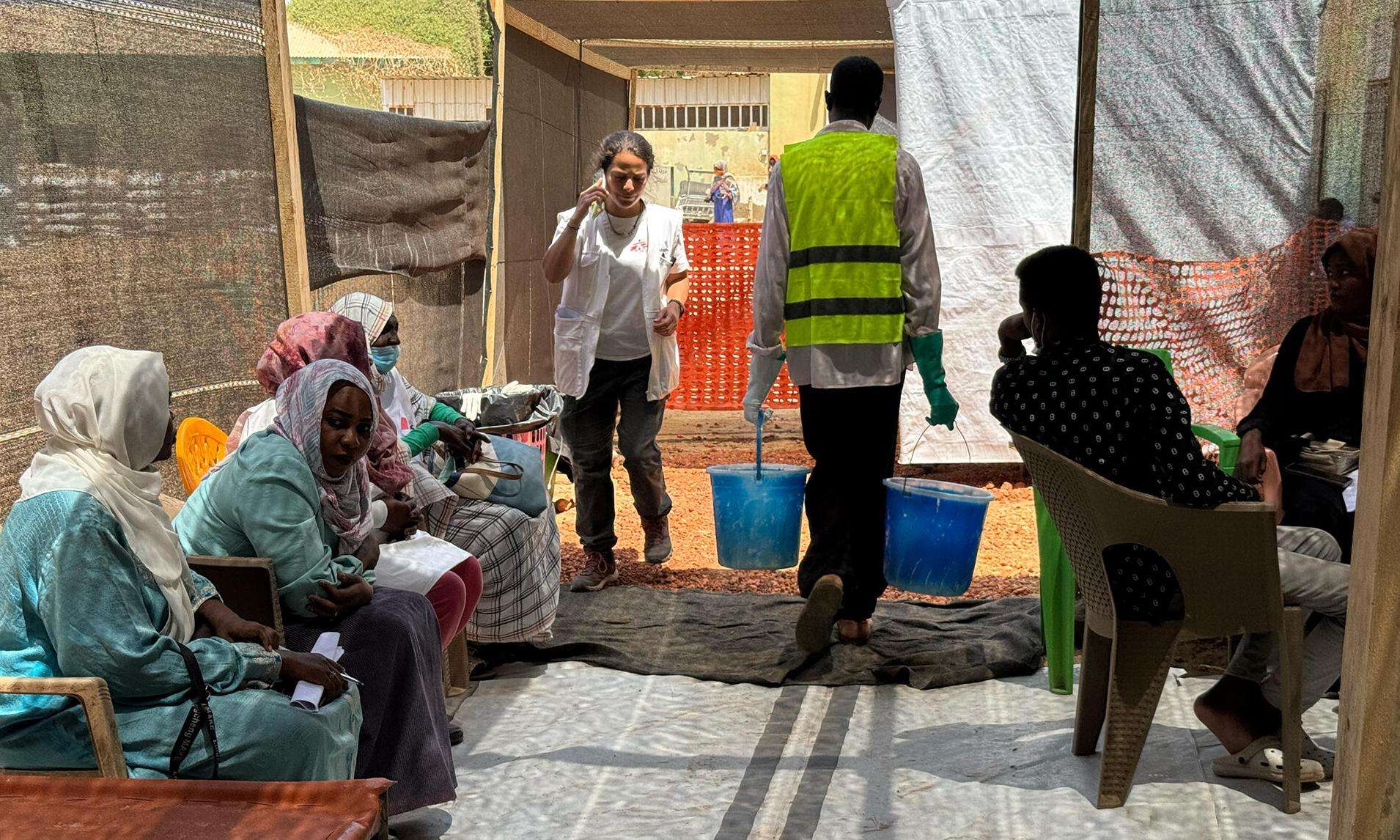
A violent attack in Sudan’s White Nile region has led to a deadly wave of cholera, further exacerbating the humanitarian crisis in the country. The outbreak has swept through affected communities, placing enormous pressure on an already fragile health infrastructure struggling to cope with multiple crises.
The cholera outbreak, which began shortly after the attack, has spread rapidly through rural and urban areas in the White Nile, with numerous cases of severe dehydration, vomiting, and diarrhea reported. Medical professionals warn that the rapid spread of the disease could lead to more deaths if swift measures are not taken to contain it.
Local hospitals and clinics in the region are overwhelmed, with doctors and nurses facing a shortage of medical supplies and insufficient resources to treat the growing number of cholera cases. International aid organizations, including the World Health Organization (WHO) and Médecins Sans Frontières (MSF), have mobilized to provide emergency medical care, but access to affected areas is limited due to ongoing conflict and insecurity.
The attack itself, believed to be perpetrated by armed groups, has compounded the already dire situation in Sudan, where the conflict between various factions has displaced millions and created widespread food and water shortages. The violence has disrupted basic services, including sanitation and clean water supply, creating the ideal conditions for the cholera virus to spread.
Cholera, an infectious disease caused by contaminated water, is particularly dangerous in environments where access to clean water and sanitation is limited. The lack of proper infrastructure and the displacement of people due to ongoing violence have left many at risk of infection. In the White Nile region, where poverty and infrastructure decay are prevalent, the combination of these factors has led to a severe health crisis.
Sudan has faced numerous public health challenges in recent years, including outbreaks of diseases such as malaria, dengue fever, and measles. However, the cholera epidemic has highlighted the vulnerability of the nation’s healthcare system, which remains under-resourced and poorly equipped to handle large-scale outbreaks.
Health experts are urging the Sudanese government and international organizations to prioritize the distribution of clean water, sanitation supplies, and medical treatments to curb the spread of the disease. In addition, efforts to restore peace and security in the region are critical to ensuring that healthcare teams can access affected areas and provide essential services to the population.
The humanitarian crisis in Sudan is compounded by a political environment marked by instability and governance challenges. Efforts to negotiate peace and provide aid have been hindered by ongoing conflicts and the breakdown of state institutions. This has left millions of Sudanese citizens vulnerable to both violence and disease, with little recourse for relief.
The international community has expressed concern over the worsening situation in Sudan, calling for an immediate ceasefire and increased humanitarian assistance. The United Nations and other global organizations have pledged to support Sudan in combating the cholera outbreak and addressing the broader health and humanitarian needs of the population.
As the cholera outbreak continues to spread, the need for international solidarity and swift action is more urgent than ever. The lives of thousands of Sudanese people hang in the balance, and without concerted efforts to address both the immediate health crisis and the underlying political instability, the situation is likely to worsen. The international community must act now to save lives and prevent further suffering in Sudan’s White Nile region.

